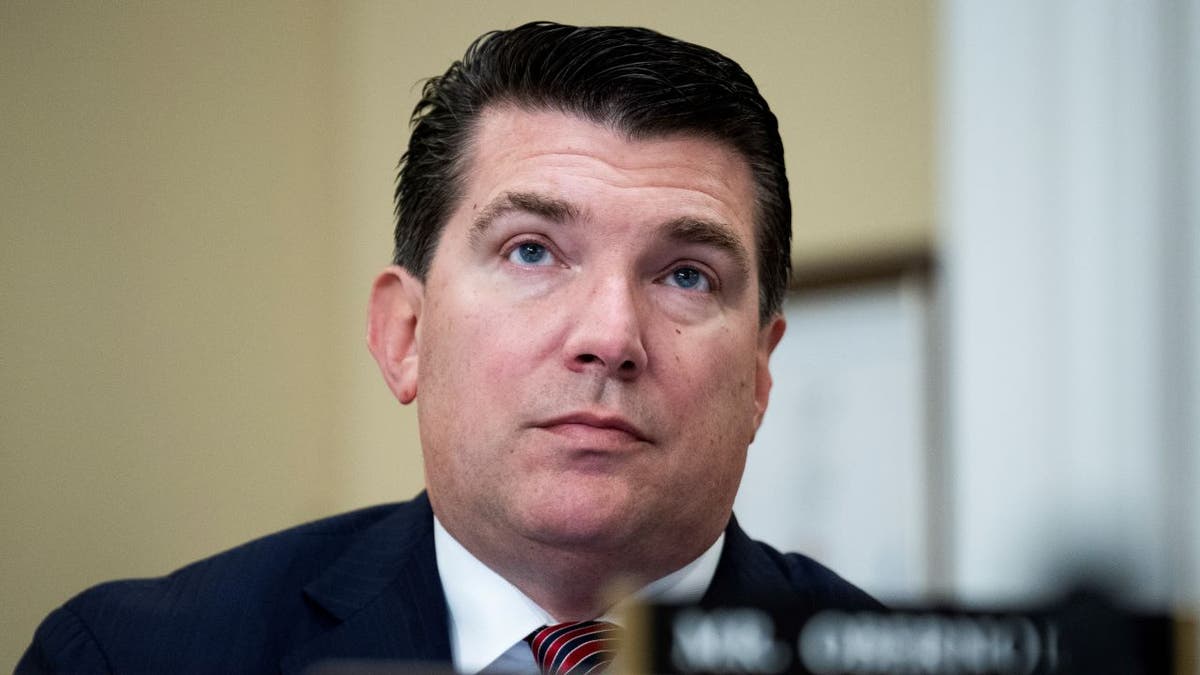It is said that predicting the future isn’t magic. It’s really just artificial intelligence.
If that’s the case, perhaps we should ask AI when Congress might pass a bill to regulate the emerging technology – before it spirals out of control.
There’s a push by Congressional leaders to approve a bill regulating AI when lawmakers return to Washington after the election. But the path to passage – and developing a consensus on establishing guardrails for AI – is far from certain.
Senate Majority Leader Chuck Schumer, D-N.Y., promised legislative action on AI last year.
REPORTER’S NOTEBOOK: THE HARD STUFF IS YET TO COME
“It can’t be days or weeks. But nor should it be years. It’ll be in the general category of months,” said Schumer.
The New York Democrat convened multiple AI forums on Capitol Hill to educate senators about the prospects – and dangers – of AI. Schumer brought in tech titans and innovators ranging from Elon Musk to Mark Zuckerberg to Sam Altman, the founder of OpenAI.
“This is sort of an important, urgent and in some ways unprecedented moment and I think we really need the government to lead,” said Altman at the time.
Many Americans have been left wondering: when will Congress move to regulate the seemingly boundless medium of generative AI? (Getty Images)
Congress has a mixed record of establishing standards and best practices for new technologies.
Samuel Morse – the inventor of Morse Code and developer of the telegraph – brought his new-fangled system to Washington to showcase for the federal government. He stretched a wire between two rooms at the Capitol in the 1840s, demonstrating how to dispatch signals and messages down the line. Morse then strung a telegraph line from Washington to Baltimore in 1844 for a private showing of the technology to Washington power brokers. Morse transmitted the words “What hath God wrought” from the Supreme Court chamber inside the Capitol. But the federal government didn’t buy it. And that’s partly why there has always been private control of telecommunications in the U.S. compared to other nations.
And that is precisely what Congress “hath wrought.”
USER’S MANUAL ON WHAT HOUSE RACES TO WATCH ON ELECTION NIGHT
Congress did intervene in the 1920s and 1930s with this new thing called “radio.” There was no restriction on power, wattage or footprint The signals of various broadcasters stepped all over one another. The broadcasters appealed to Congress to regulate them via legislation. That christened the formal beginning of federal telecommunications policy.
However, lawmakers didn’t fare quite as well in the 1990s wrangling the internet, formerly known as “the information superhighway.” There were concerns about the First Amendment and inhibiting innovation. Congress did approve the Telecommunications Act of 1996 – a landmark piece of legislation. But some lawmakers might wish to handle that legislation a little differently today considering the present status of the digital ether.
“We know that there is extraordinary potential and possibility with this. But also some peril,” said House Speaker Mike Johnson, R-La.

House Speaker Mike Johnson, R-La., has expressed wariness regarding the federal government’s jurisdiction over AI-related concerns. (Getty Images)
Johnson and other conservatives are leery of big government quashing the potential of AI.
“We want to resist overregulating. The innovation aspect of AI is very important,” said Johnson. “I believe in Reagan’s principle that less government is the solution. Government is the problem itself. So we want to be very careful.”
Johnson and others believe that the European Union went too far earlier this year when it approved an AI regulation bill – the first comprehensive legal framework on AI anywhere in the world. The EU law creates four areas of risk in using AI. Banned under the EU’s legislation is “unacceptable risk.” It’s where AI exploits the vulnerabilities of someone due to their race, disability or social status. There’s concern that AI could study biometric data to categorize people. As a result, the EU could manipulate people via subtle techniques. That could prompt them to reach dangerous conclusions or potentially take harmful actions – thanks to engaging with AI.
WHO’S IN CHARGE: THE MUDDY HISTORY OF THE 50-50 SENATE
The EU also wants a conformity among AI systems which enter the marketplace. This would, in effect, create a “level playing field” for AI users.
Rep. Don Beyer, D-Va., is studying for a master’s degree in AI at George Mason University. He suggests it isn’t just free-market conservatives like Johnson who want to limit the government footprint on AI.
“None of us want to imitate the European Union’s AI act, which we see as very regulatory. Very prescriptive. We want to have a light enough touch so that America is still the center place of innovation, imagination and creativity,” said Beyer.

Rep. Don Beyer, D-Va., has expressed unwillingness to mirror the European Union’s broad-ranging AI act, which he described as “very regulatory.” (Bill Clark/CQ-Roll Call, Inc via Getty Images)
But Beyer offers a note of caution.
“Some regulation is probably going to be necessary because there will be bad actors,” said Beyer.
As to the speed of passing legislation? Beyer says he’s not concerned.
A ‘VERY DIFFERENT SCENARIO’ FOR THE HOUSE OF REPRESENTATIVES ELECTIONS IN 2024
“It’s much faster than what we’ve been able to react on for social media, for example. We’ve done very little. One of the things that’s pending is a major privacy bill. We’ve never had a real Privacy Act in American history,” said Beyer.
The House empaneled an AI task force last year. Rep. Jay Obernolte, R-Calif., is one of the co-chairs. He says people shouldn’t fear AI.
“Unfortunately, AI is a topic that’s been informed by 50 years of science fiction and pop culture. So, if you ask the average American what the biggest downside potential of AI is, they’ll give you something out of a Terminator movie where an army of evil robots rises up to take over the world. That’s not what we worry about,” said Obernolte.

Rep. Jay Obernolte, R-Calif., dismisses stereotypical concerns of “evil robots” taking over the world, courtesy AI. However, he does worry about its potential leveraging by bad actors to spread misinformation and make below-grade financial transactions. (Tom Williams/CQ-Roll Call, Inc via Getty Images)
But what does concern Obernolte is the potential for AI to spread misinformation, pierce your data privacy and even make malicious financial transactions without your knowledge.
“These are all things that keep us up at night. That put together are probably equally consequential as an army of evil robots,” conceded Obernolte.
But can Congress act before AI does?
CLICK HERE TO GET THE FOX NEWS APP
“Under Republican control this term in the Congress, we’ve just had trouble keeping the lights on,” sighed Rep. Ted Lieu, D-Calif., the other co-chairman of the AI task force.
A report is due from the AI task force later this year.
What might it say? What legislative solutions might lawmakers offer? Can Congress pass a bill? Will the outcome of the election impact these possibilities?
Unclear.
But perhaps ask AI.





